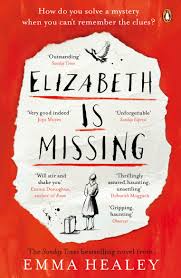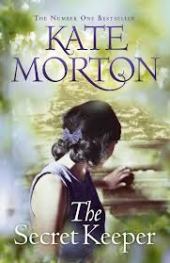The Signature of All Things
February 1, 2015 at 1:15 pm | Posted in Uncategorized | 3 CommentsTags: Book Clubs, book review, Books, good book reviews, Great Reads
The Signature of All Things
Elizabeth Gilbert
Bloomsbury 2013
What a wonderful treat ‘The Signature of All Things’ is. I was initially put off buying this book by Elizabeth Gilbert’s fame from the arguably precocious ‘Eat Pray Love’ but thank goodness I suspended my judgement because this novel is truly awesome in every sense of the word. It’s literary, compelling, different and spiritually underscored. It follows the life of Alma Whittaker a girl born at the turn of the century in the 1800’s to a father who has built an import export empire on his own steamy grit, taking no prisoners on the way. Alma is intelligent, diligent but not conventionally good looking and in no way destined for a typical life of a young lady of her time.
Alma develops a lifelong love for botany and a strong business mind under her father’s tutelage which is sometimes welcome and oftentimes forced. Her work takes her to deep questions about evolution which in turn take her on several journeys; emotional, physical, financial and spiritual
I can’t do this book near enough justice with my review. Alma is such a real and complete character, the setting of Philadelphia is such an apt backdrop for this story and every step it takes you on just feels so right and most splendid of all where the story ends is so glorious for professional women.
The book in haiku: Read, enjoy, wonder, forget how to eat, pray love, renaissance woman
McEwan reigns
November 11, 2014 at 10:24 pm | Posted in Great for Book Clubs, Middle Weight Fiction, The Children Act | 2 CommentsTags: Book Clubs, book review, good book reviews, Great Reads, new fiction, recomended reads
Ian McEwan ‘The Children Act’, Jonathan Cape 2014
Ian McEwan is a master storyteller. In his latest novel he brings us on a journey into the moment of a life of a very successful high court judge, Fiona and the personal and legal challenges she simultaneously faces.
McEwan employs his impressive skills of engineering a plot and grinding the wheels of prose to tenderly lament a marriage in peril after thirty years and to bring us on the journey of Fiona’s greatest professional challenge – the case of a seventeen year old Jehovah’s Witness boy who is refusing a lifesaving blood transfusion on the grounds of his religion.
To compare this novel to ‘Solar’ or ‘Saturday’ would be an easy thing to do but not appropriate, for this novel relays something that has provoked McEwan’s sensibilities and interest and perhaps it is this suspect personal feel that distinguishes this novel from his others.
The Guardian, in their review of ‘The Children Act’ observed that McEwan is fascinated with ‘great institutionalized authorities’ in the upper echelons of society – his protagonist in ‘Saturday’ from the esteemed medical profession and in ‘Solar’ a research scientist. Now in ‘The Children Act’ a high court judge. His deluges into Fiona’s personal difficulties however feel more poignant and sit a little less easy than journeys with his previous characters whose theatrical personalities lend themselves to plots of great scope and pace.
What does McEwan feel about Fiona and her situations really? I’m not sure by the end of the novel but I know her view of the world and her vantage point from the legal profession captured his imagination and I felt glad to have been moved by some deeply beautiful prose;
‘It could be just like that, a poisonous obsession, an addiction drawing him away from home, bending him out of shape, consuming all they had of past and future, as well as present.
Either way unbearable.
Unbearable and fascinating. And irrelevant.’
The Children Act in haiku
Legal vantage points
Logic and closed emotions
Verdicts that flounder
The Secret History Donna Tartt
April 4, 2014 at 4:24 pm | Posted in Award winners, Middle Weight Fiction, Popular Fiction, The Secret History | 1 CommentTags: Book Clubs, book review, Book Reviews, bookclub, Bookreviews, good book reviews, Great Reads, popular fiction, recomended reads

It is understandable how Donna Tartt’s ‘The Secret History’ became a long-term bestseller and conquered a place in so many book lovers hearts. The story centered on a group of young bright affluent students at an exclusive Vermont College in the 1980’s roaming wild and burning through money is exceptionally engaging .and compulsively addictive.
The young group is composed of a variety of apparently sympathetic characters Richard who, unlike his peers, is on a scholarship to the exclusive college and is at great pains to conceal his blue-collar roots, twins Camilla and Charles known for their manners and gentle ways, Henry the emergent leader of the group remarkable for his adaptability to changes in circumstance and ability to mix easily with all sorts of people and also Francis and Bunny who enjoy all life has to offer with great self-assurance. What the characters all have in common is that they are all students of the charismatic erudite Professor Julian Morrow who teaches them Classics exclusively to a level of detail and reverence far above the academic norm.
Inspired deeply by their passionate teacher a few members of the group perform a Dionysian rite one night (a rite designed to work the worshiper into a state of ecstasy in order to feel the power of the gods through wine, dancing and often sexual expression) but the rite has truly gross consequences for the group which go on to drive the plot to even wilder and darker places and the death of Bunny Corcoran (whose death is revealed to the reader in the first line of the novel). 
Do not look for redemption, regret or guilty melancholy from this group, as a reader the novel demands that one must think much bigger when it comes to this motley crew and contemplate openly Donna Tartt’s brilliant subtle suggestions that Henry may himself be the devil incarnate and that in this existential world absolutely anything is possible once you have the nerve and stomach for it.
The plot is set in the familiar routines of college life against the rich dripping backdrop of the classical world of Greek and Latin language, prose and poetry. Donna Tartt’s prose is just so accomplished that at times it feels like God himself has lifted the telephone to call you personally and reveal some select mysteries of the world;
‘…there was never any doubt that he (Henry) did not wish to see us in our entirety, or see us, in fact, in anything other that the magnificent roles he had invented for us: genis gratus, corpore glabellus, arte multiscius, et fortuna opulentus – smooth cheeked, soft-skinned, well-educated, and rich. It was his odd blindness, I think, to all problems of a personal nature which made him able at the end to transmute even Bunny’s highly substantive troubles into spiritual ones.’
The novel in haiku; murderous thoughts fly, money and nerve conquer all, but it takes just one
Kate Morton’s ‘The Secret Keeper’ panmacmillan
June 11, 2013 at 5:07 pm | Posted in Great for Book Clubs, Middle Weight Fiction | Leave a commentTags: Book Clubs, book review
‘Rural England, a farmhouse in the middle of nowhere, a summer’s day at the start if the nineteen sixties. The house is unassuming: half-timbered, with white paint peeling gently on the western side and clematis scrambling up the plaster.’
During a party at her family farmhouse, sixteen year old Laurel from her childhood tree house is witness to a criminal act that gives life to Kate Morton’s abundant epic of a novel ‘The Secret Keeper’.
Now a grown woman and revered actress of her time, Laurel and her family reconvene to the family farmhouse for the last time with their beloved dying mother. Returning after so long to her family home in such sad circumstances Laurel is overwhelmed by memories and an urge to solve the secret of what actually happened that day.
Through research as the National Library Laurel’s journeys back in time to London during the blitz where she attempts to piece together a war torn story of friends, lovers, orphans, secrets and personal tragedies all of which have her mother at the heart of them.
Kate Morton’s story is evocative with a notable tenderness for her female characters and children she describes. Kate’s characters find themselves mixed up together in ways that would never have come about without the war. Her characters share the sorrow of losing loved ones and the hardship of wartime but their differences in personal circumstances and social classes are toxic.
This novel is dripping in mystery, is full of well conceived characters and has a very well researched backdrop of war time London blitz making it a glorious page turner of a novel.
http://www.katemorton.com/the-secret-keeper/
Haiku: As the bombs drop down, Dorothy and Vivien, drop bombs of their own. 
Blog at WordPress.com.
Entries and comments feeds.







